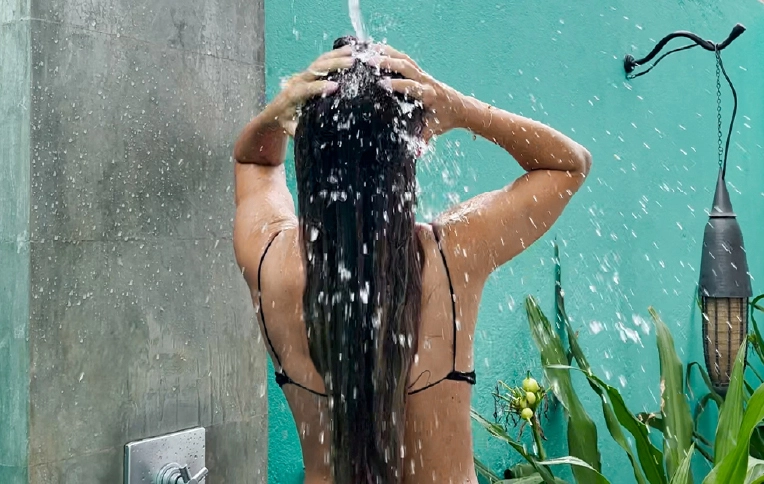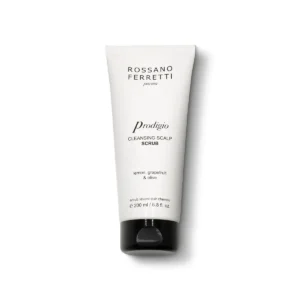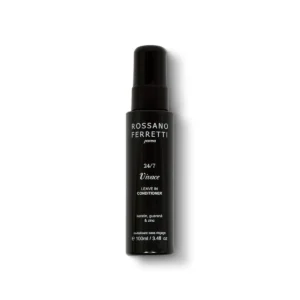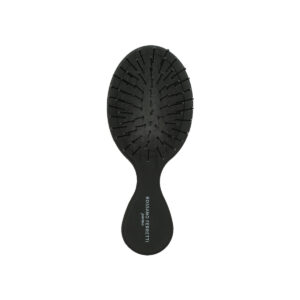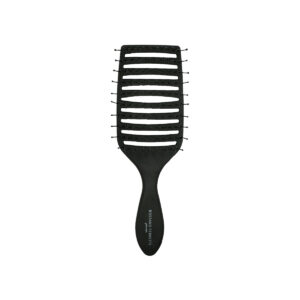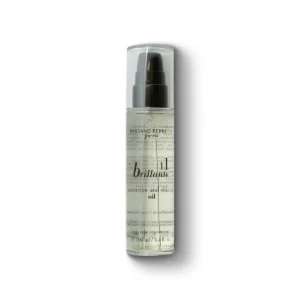How to Protect Your Hair From Chlorine When Swimming




In this article:
– What does chlorine do to your hair?
– How to protect hair from chlorine?
– Final Thoughts from Behind the Chair
Living and working in a sun-drenched paradise like Los Cabos, I see it all: clients who spend their days enjoying the ocean, infinity pools, and endless sunshine – but who also come in wondering why their hair suddenly feels dry, faded, or brittle. The answer? More often than not, it’s chlorine.
The pool may be your go-to escape from the heat, but for your hair, it’s a harsh environment. Chlorine is fantastic for keeping pool water clean, but not so kind to your strands. It strips away the protective oils that give hair its softness and shine, leaving it vulnerable to dryness, breakage, and even color changes.
But here’s the good news – you don’t need to sacrifice swimming to save your hair. With the right knowledge and a few salon-level strategies, you can protect your locks and enjoy every splash without the damage.
What does chlorine do to your hair?
Before I give you the solutions, let’s tackle the problem. Why is chlorine so bad for our hair?
This chemical (as well as saltwater) can strip your hair of its natural oils, leaving it dry and brittle. You see, our natural hair oils have amazing moisturizing, healing, and protective properties and, without them, our strands are more vulnerable. Chlorine can also change the color of your locks and instigate split ends.
But that’s enough of that. Let’s move onto how you can splash away all summer long and still have fabulously vibrant hair (chlorine DOES NOT have to spoil your fun!):
How to protect hair from chlorine?
1. Rinse Your Hair with Clean Water Before and After Swimming
When your hair is dry, it hungrily absorbs water like a sponge. So, if you jump into a pool with dry hair, it’s inevitable that it’ll suck up as much chlorinated water as it can. But there’s one clever little trick that can make ALL the difference:
Simply rinse your hair with clean water before you swim! Since your locks are already wet, it will take them longer to absorb the harsh chemicals in the pool water.
Another professional tip is to wash your hair after swimming in salt or chlorinated water. This way, you can rinse away all the harsh chemicals so that they have no chance of doing any further damage.
For a more thorough hair and scalp wash, I always recommend that my clients incorporate a scalp scrub into their routine.. A gentle exfoliating scrub helps deeply cleanse the scalp and reinvigorate the hair, helping to prevent any irritations or build-up on the scalp caused by chlorine. Look for scrubs formulated with soothing ingredients like peppermint or olive extracts to soothe and refresh your scalp and hair, which is just what you need after a hot day in the glorious sun!
2. Apply a Protective Oil to Your Locks to Reduce the Effects of Chlorine
Using a protective hair oil before swimming can make a world of difference. It acts as a barrier, helping to prevent chlorine from penetrating the hair shaft and stripping away natural moisture. Oils rich in antioxidants, fatty acids, and vitamin E – like those derived from grape seeds or sunflower – are especially effective. They not only nourish and condition the hair but also provide a layer of defence against environmental stressors like sun and pool chemicals.
Pro tip: If your hair is color-treated or highlighted, applying a protective oil before swimming is one of the easiest ways to help maintain vibrancy and reduce the risk of fading or brassiness. It’s a small habit that delivers noticeable results.
3. Use a Mask to Infuse Your Hair with Moisture
You already know that chlorine strips hair of its natural, hydrating oils. If it’s already gotten the better of you in this regard, do not worry – there is hope!
One of the most effective ways to replenish hydration is by applying a deep conditioning mask once or twice a week. These treatments help infuse the hair with moisture, smooth the cuticle, and improve manageability. For even better results, follow up with a lightweight leave-in conditioner to lock in that hydration and add an extra layer of protection throughout the day.
Apply the mask to freshly washed hair, focusing on the mid-lengths and ends, and let it sit for at least 5 minutes. After rinsing, apply the leave-in to damp hair and let it air dry naturally. This simple ritual can make a big difference-leaving your hair soft, silky, and ready for more summer fun.
4. Keep Hair Dry and Safe with a Swimming Cap
For more avid swimmers who spend more time in the water when on holiday than on land(!), I recommend wearing a swimming cap to give your hair even more protection. Just remember to apply a protective barrier oil to your locks so that there’s no harmful friction between the cap and your strands. Without a barrier oil, the cap can cause your strands to snap, leaving you with a frizzy “do.”
5. Detangle Your Hair with Care
One last piece of advice : try to detangle your wet chlorine-exposed hair gently.
Because chlorine can leave your hair vulnerable, dry, and more prone to breakage, you need to tackle those tangles with care.
Instead, use a wide-tooth comb or a soft detangling brush and start from the ends, working your way up. If needed, apply a little leave-in conditioner or a detangling spray to help glide through knots more easily.
I always tell my clients: patience goes a long way here. Rushing the detangling process can cause unnecessary damage, especially if your hair has already been stressed by sun and chlorine.
Final Thoughts from Behind the Chair
Protecting your hair from chlorine doesn’t have to be complicated. It’s about building a few intentional habits: pre-rinse, protect, cleanse, and condition. With just a few thoughtful steps, you can enjoy the pool, ocean, and sunshine without compromising the health or beauty of your hair.
If you’re planning a holiday, or if swimming is part of your regular routine, these tips will help you keep your hair looking and feeling its best, season after season.





